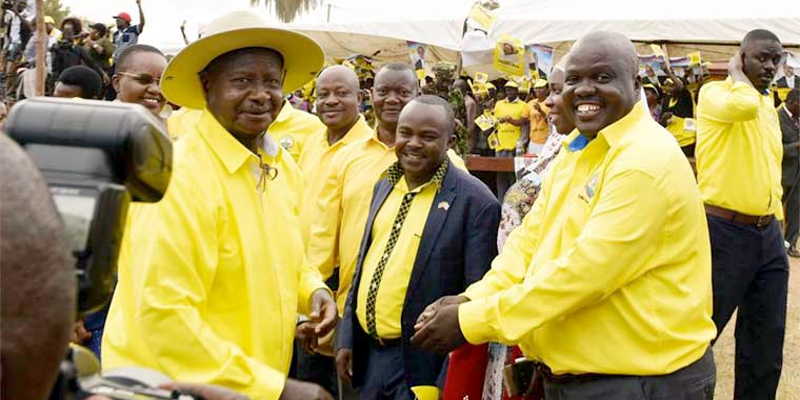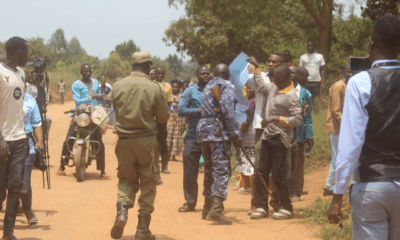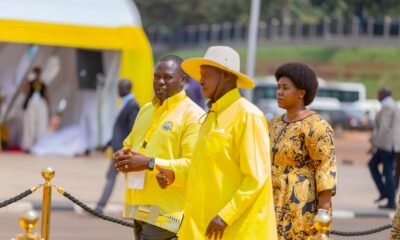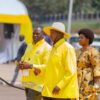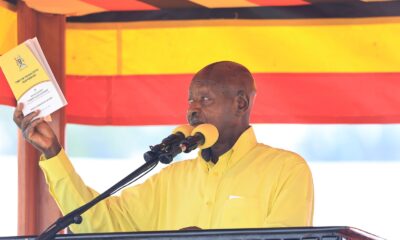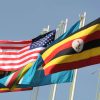Columnists
Is Uganda in a leadership crisis?
You know a country is veering off course when members of the ‘bewildered herd’ take places of the ‘specialised class’
Ninety five years ago, an American philosopher wrote a book simply entitled, “Public Opinion.” In the book, Lippmann advised that any society has two classes of people — ‘specialised class’ and ‘bewildered herd’. He defined the specialised class as a small fraction of a society, often made up of elite class of intellectuals, that takes active role in running general affairs of the country.
Lippmann advised that the specialised class, occupying the political, military, economic, and ideological systems in the country, must have “interests that reach beyond the locality.” He also guided that this small, deliberately nurtured group of cerebrals must “be a machinery of knowledge to circumvent the primary defect of democracy – the impossible ideal of the ‘omnicompetent citizen’.”
Going by this philosophical counsel, top leaders in a country (serving in the three arms of the state – the executive, judiciary and legislature) should be individuals held by society in high esteem by virtue of their education and knowledge, integrity, vision and foresightedness, humility, experience, and their being far from corruption and relatives.
Leaders are supposed to be men and women who not only think through what they say or do, but do not say anything without aim or taking steps towards achieving the aim. They do not serve personal interest.
Members of specialised class ignore luxurious life, lead very simple lifestyles nearly like the common man. They stand high and their virtues earn them praise and admiration by nearly all the people. We can see why very few people in any society qualify for membership in the specialised class.
Rage of bewildered herd
The rest of the people in a society, the masses, are what Lippmann termed the bewildered herd. Mr. President, being a cattle keeper, you know quite well what happens when a herd gets bewildered (or excited). A single cow may start running and others follow. When it kicks its hind limbs, the rest will do the same. They do not ask why they are running or kicking. Often the steward loses control of such a herd, and if he attempts to stop the animals, they may trample him to death.
Lippmann famously said, “A country must protect itself from the trampling and rage of the bewildered herd…” In April this year, I wrote in these very pages explaining Why NRM lost the elite support in Kampala and its surroundings.
When the NRM had just taken power over 30 years ago, the leadership of this country comprised of men and women whom no one could doubt they belonged to the specialised class. Dr. Samson Kiseka (RIP), Prof. Ponsiano Mulema (RIP), Eria Kategaya (RIP), Joash Mayanja Nkangi (RIP), James Wapakhabulo (RIP), Abu Kakyama Mayanja (RIP), Abbey Kafumbe Mukasa (RIP), Sam Kalega Njuba (RIP), and Justice Joseph Mulenga (RIP) exuded everything cerebral.
Not all of them are dead; Amanya Mushega, Matthew Rukikaire, Prof. Edward Kakonge, Prof. Apollo Nsibambi, Muky. Joyce Mpanga, Victoria Sekitoleko, Dr. Kizza Besigye, Milia Matembe, Jaberi Bidandi Ssali, Kintu Musoke, and Dr. Paul Kawanga Semwogerere are some of the living members of the specialised class that served this country diligently.
Village mobilisers became ministers
Three decades later, their places are occupied by individuals some of whom wouldn’t pass the suitability test without causing a throat-drying debate. Where did it go wrong? When did the doors of Parliament and Cabinet Chambers open for comedians, dancers, rappers, and pet job seekers? Could it be that Uganda ran out of the specialised class? Could it be that we have all become bewildered?
Mr. President, the turning point was the advent of the ‘bisanja brand of politics’ – beginning around 2003 — when power retention became the overarching goal of your leadership. You started appointing people into very critical positions in government, basing not on their merit and virtue (prerequisites of specialised class) but on their ability convey political bewilderment. Village mobilisers, those who could kneel for sole-candidate logarithm, abusers of your opponents, and best dancers at rallies became ministers.
In the process you compromised the quality of leadership in the country, and sent a wrong signal to the masses. You even went ahead and told Ugandans to stop minding voting MPs who had nothing to offer in their legislative duties, as long as they would be whipped by their caucus heads to vote for NRM policies.
Ugandans responded by voting into Parliament (the country’s immediate reservoir of national leaders) people whom serious Ugandans think about only when they are discussing the country’s predicaments. In 2011, I wrote about the “false democracy” in our country that turned our politics into a nigiina (free-for-all club, running without rules).
The price of “Musevenicracy”
I wondered whether people in this country voted for the same reasons people elsewhere vote. I warned thus, “…in the near future if the polls were to remain fraud-free, the representatives of the bewildered herd will always wins.” Trust me few elites would win an election today; needless to say this trend is becoming dangerous for our country.
Many eligible persons have been forced to stay away from elective politics and leadership. This effectively has left a leadership vacuum, filled by individuals whom the bewildered herd associates with.
Mr. President, thanks to your brand of democracy (which I prefer referring to as “Musevenicracy”), Uganda is now besieged by the bewildered herd. People no longer trust the specialised class. Here in Kampala and its surroundings, for example, it is not uncommon to hear voters commenting about potential leaders of calibre thus, “Ono tatugobe mukibuga?” (Won’t this one drive us out the city?)
They have resorted to voting contemporaries, many of whom needless to say badly lack the minimum requisites of a leader. People of calibre no longer stand a chance in today’s politics. Musevenicracy has driven decent and reputable men and women out of politics, both as voters and candidates. Why? It is a chicken-or-egg puzzle; difficult to tell what came first.
Failure to build strong institutions
The elite may have stopped vying for leadership after assessing the kind of voters and their interests and realised they stood no chance. They may also have stopped voting because they became so depressed to vote the kind of candidates who were standing for elective positions, and under the kind of voting conditions full of violence and indiscipline.
Consequently, we have ended up with many leaders in our country but very few of them can qualify as national leaders or members of the specialised class. To be honest, most African countries are undergoing a similar leadership crisis, mainly because they have failed to build strong institutions and rules to prepare individuals for leadership.
In today’s Uganda, anyone can become a legislator. That is scary. What is even more terrifying is that anyone can now become a member of the executive – a cabinet minister! Some souls being chauffeured in state cars (with red registration number plates, and national flags) look more like someone you could have a beer with than national leaders. No wonder they are being lured by Ushs.5 million bribes!
Mr. President, like I have written here before, we only need to get honest with ourselves and pronounce that the prevailing political system has failed. What is going on right now is simply unsustainable, going forward. We need a new leadership style based on three pillars; Discipline, Unity and Prosperity, in that order! If what is going on is what democracy is all about, then I miss dictatorship.
It is again Lippmann who said, “The genius of a good leader is to leave behind him a situation which common sense, without the grace of genius, can deal with successfully.” I doubt anyone can predict where Uganda’s leadership will be ten, fifteen years without facing a brainteaser requiring her to read a book, “Converting a hip-hop dancer into a national leader.”
Comments



